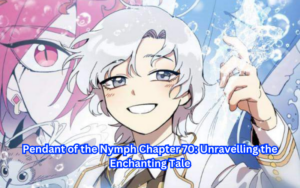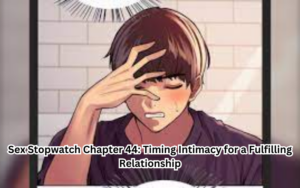
Disadvantages of Being a Freemason
Freemasonry is a long-established fraternal organization known for its secrecy and exclusivity, with a history spanning several centuries. Although it has its attractions and advantages, it is crucial to acknowledge the potential downsides associated with being a member of this ancient society. This article aims to delve into the disadvantages of belonging to the Freemason.
1. Time Commitment

Being a Freemason requires a significant time commitment. The organization has its rituals, meetings, and events that members are expected to attend regularly. For individuals with busy schedules or demanding careers, balancing Masonic obligations and personal life can become a challenge.
2. Financial Obligations
Joining Freemasonry involves financial commitments. There are initiation fees, annual dues, and contributions to various charitable activities organized by the Masonic lodges. These costs can add up, and some individuals may find it financially burdensome to be a part of the organization.
3. Secrecy and Mistrust
The confidential aspect of Freemasonry has frequently been a matter of doubt and distrust in the public’s view. Detractors claim that the private rituals and undisclosed customs fuel conspiracy theories and unfavorable perceptions. This secrecy may result in misunderstandings and erect a barrier between Freemasons and the general public.
4. Limited Female Membership
Historically, Freemasonry has been an organization exclusively for men, and although there are separate orders for women, they are not universally acknowledged.
This exclusiveness has been criticized for its failure to promote inclusivity and gender equality, which could deter individuals who advocate for equal opportunities for everyone.
5. Impact on Career
In some professions or communities, being a Freemason can have both positive and negative implications on one’s career. While some individuals believe that networking within the organization can open doors and opportunities, others fear that perceived favoritism or nepotism may impact career growth and professional credibility.
6. Unintended Social Division
While Freemasonry aims to foster brotherhood and unity among its members, it has also faced criticism for inadvertently creating a social divide.
The exclusivity and secrecy can lead to the perception that Freemasons prioritize their fellow members over others, potentially causing tension and isolation in social circles.
7. Misconceptions and Stereotypes
Freemasonry has been the subject of various misconceptions and stereotypes, ranging from harmless myths to more concerning allegations.
These misconceptions may lead to unfair judgment or discrimination against Freemasons, even though the reality may be far from the popular beliefs.
8. Lack of Transparency
The internal operations and decision-making procedures within Freemasonry are frequently not transparent to the general public. This lack of transparency can give rise to speculations and suspicions, making it challenging for outsiders to gain a comprehensive understanding of the organization’s intentions and goals.
9. Allegations of Influence and Power
Some critics of Freemasonry argue that the organization wields undue influence in politics, business, and other spheres. While there is no concrete evidence to support such claims, these allegations persist and can tarnish the reputation of Freemasons.
10. Strain on Personal Relationships
The time and dedication demanded by Freemasonry can occasionally place a strain on personal relationships, particularly if family members or friends feel ignored or excluded due to the member’s engagement in the organization.
Frequently Asked Questions
1. What are the Potential Social Disadvantages of Being a Freemason?
As with any exclusive organization, being a Freemason may come with some social disadvantages. One major concern is the perception of secrecy surrounding Freemasonry, which can lead to misconceptions and mistrust among non-members.
Some people may view Freemasons as a secretive or elitist group, which could impact social relationships or even job opportunities in certain contexts.
2. Are there any Conflicts of interest that Freemasons may Face?
One of the potential disadvantages of being a Freemason is the possibility of conflicts of interest. Freemasonry promotes fraternal bonds among its members, and while this can be a positive aspect, it might raise concerns about impartiality in certain situations.
For instance, if Freemasons are involved in decision-making processes that could benefit fellow members at the expense of others, it may create perceptions of bias.
3. How does the Requirement of Secrecy affect Freemasons’ Personal Lives?
The requirement of maintaining certain aspects of Freemasonry as secret can pose challenges in members’ personal lives. Freemasons are obligated to keep certain rituals and teachings confidential, which might lead to difficulties in sharing their full experiences with family and friends.
This secrecy could potentially strain relationships or lead to misunderstandings, especially if loved ones are curious about their involvement in the organization.
4. Can being a Freemason Impact Career Advancement?
While Freemasonry does not directly affect career advancement in most professions, there have been instances where membership in exclusive organizations like Freemasonry has been perceived negatively in certain professional settings.
Some people might view it as a form of favoritism or exclusion, potentially impacting opportunities for advancement in highly competitive environments.
5. How does the Commitment to Freemasonry Affect time and Personal Responsibilities?
Being a Freemason often involves a considerable commitment of time and involvement in lodge meetings, ceremonies, and charitable activities. This dedication might lead to a strain on personal time and responsibilities, particularly for individuals with busy schedules or demanding family obligations.
Balancing Masonic commitments with other aspects of life can be challenging, and some members may find it difficult to strike a harmonious balance.
Conclusion
While Freemasonry offers its members a sense of belonging, tradition, and camaraderie, it also comes with its share of disadvantages. From the financial commitments to the perceptions of secrecy, individuals considering becoming Freemasons should carefully weigh both the benefits and drawbacks before making their decision.
Ultimately, the choice to join this ancient fraternity is a deeply personal one, and understanding the potential disadvantages is an essential part of that process.




